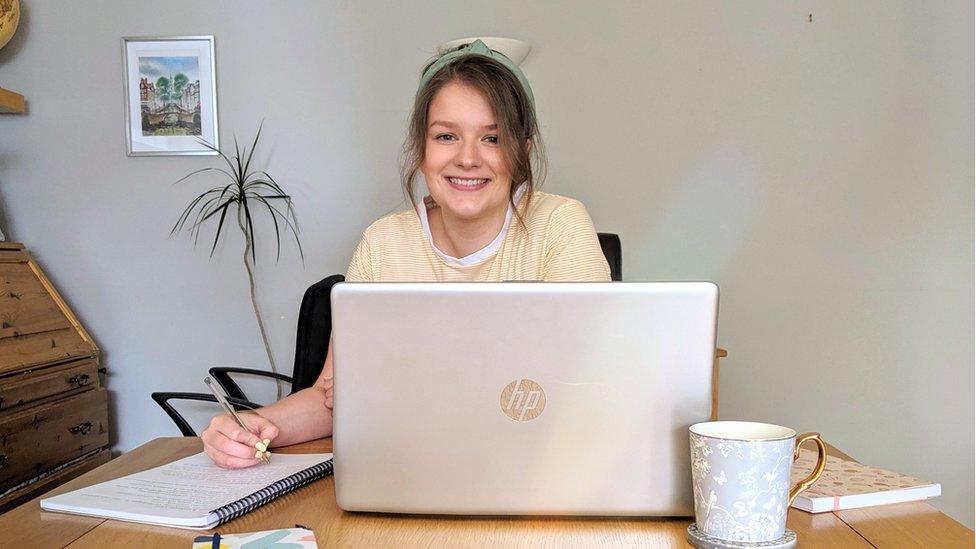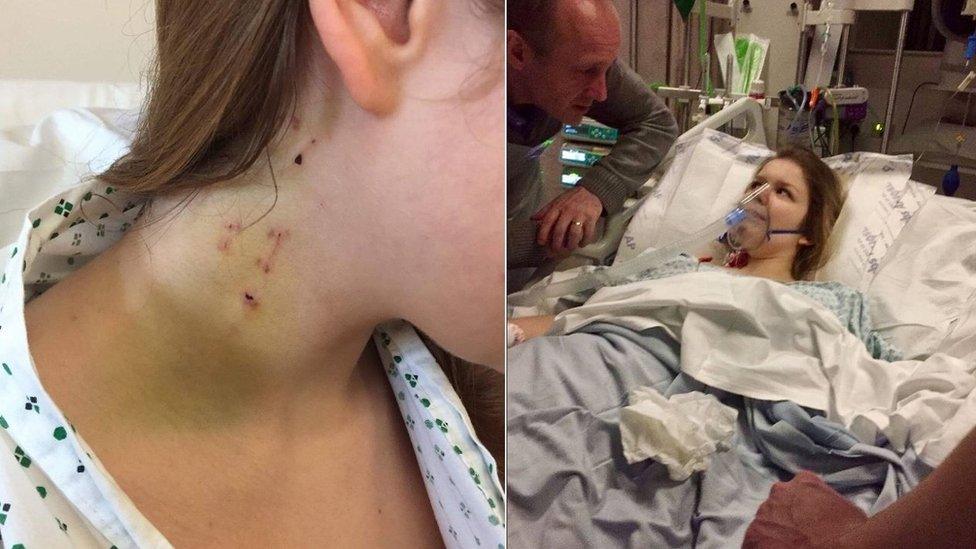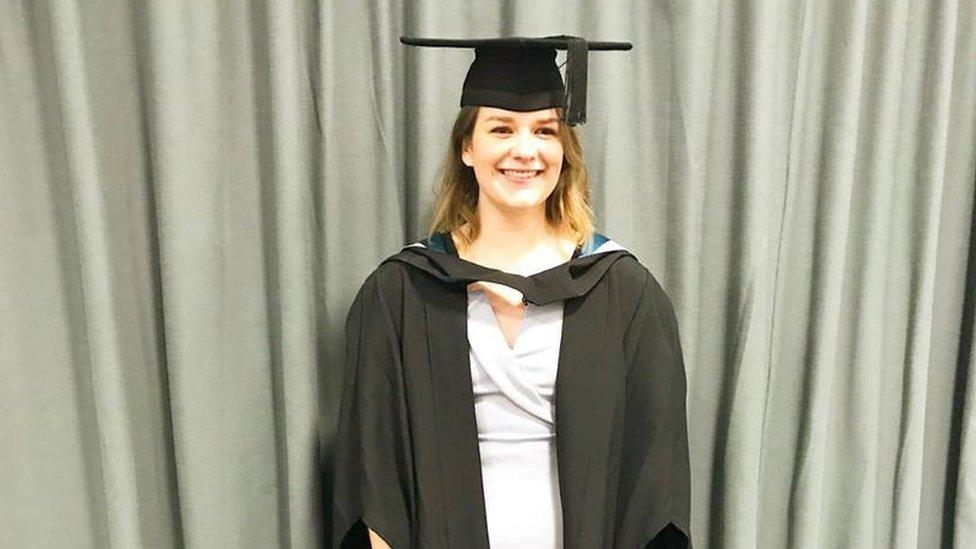Blood clot survivor wants to inspire teenagers into science
- Published

Hannah Needham says she feels she has been given "extra life"
A 22-year-old who nearly died from a blood clot has said she wants to use her experience to inspire young people into science careers.
Hannah Needham, from Northampton, collapsed in 2017 when an embolism blocked both of her lungs.
The forensic biology graduate wrote a blog to raise awareness, and said that prompted her to "flip my bad experience and turn it into a positive one".
"Being so close to death made me see my life in a whole new light," she said.

Hannah Needham collapsed at university with a massive blood clot
Miss Needham, who was studying at the University of Worcester at the time, said she had been feeling ill for several days but then went downhill rapidly.
She was rushed to hospital with signs of heart failure, and said she was "given a very risky, life-saving treatment" directly into the main artery of her heart to break up the clot.
She spent more than three days in intensive care and another four days on a high care ward.
Following tests in hospital doctors attributed her blood clot to taking the contraceptive pill.
She said she wanted to share her experience because "younger people tend to feel invincible".
"Still, to this day, when I tell people they are shocked because of how young I was when it happened," she said.
"Showing them that things can go wrong in their bodies and the signs they should look out for is so important."

Blood clots
A blockage in a blood vessel which can be life-threatening if not treated quickly
Symptoms include throbbing or cramping pain, sudden breathlessness or sharp chest pain
The NHS advises people to call 999 if the patient is struggling to breathe, if someone has passed out or if they are coughing up blood
Source: NHS England, external

Two years after her blood clot, Miss Needham finished her degree in forensic biology and has since started working as a biological technician.
She was she told she would remain on blood-thinning medication for life.
She said her blog had sparked a science magazine aimed at teenage girls, and "kick-started my dream career".
"Encouraging young people to consider science is important to keep our world thriving and moving forwards," she said.
"The science world needs more outside-the-box thinking and fresh minds."

Hannah Needham says that the magazine allows her to combine her science and creative sides
Miss Needham said she felt her blood clot had "happened for a reason".
"I didn't want to sit and think about what could have been, but instead to look forward to the things I could achieve with all these extra years of life I was given.
"I am very proud of my past and what my family and I have overcome, but I am even more excited to see where my future will take me."